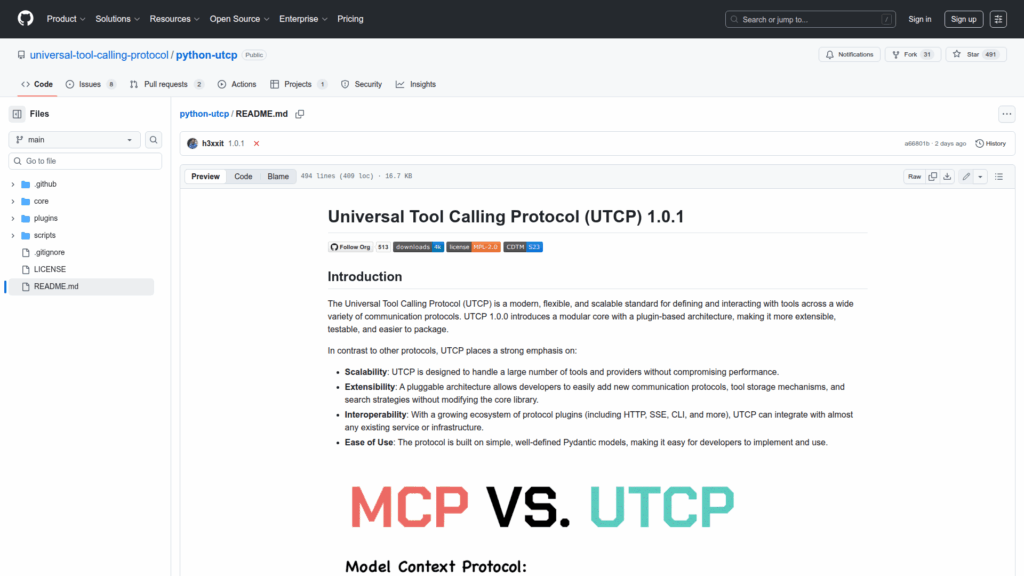python-utcp
Basic Information
python-utcp is the official Python implementation of the Universal Tool Calling Protocol (UTCP). It implements a standard and client library for describing, discovering, registering, searching for, and invoking tools provided by remote services or local resources. The repo provides Pydantic data models for UTCP manuals and tools, an asynchronous UtcpClient that loads provider definitions from a providers.json file, transport interfaces for multiple communication protocols, and example servers and clients. It includes runnable examples for full LLM integration, a FastAPI manual/discovery server example, and guidance for wrapping existing APIs and CLIs as UTCP tools. The project emphasizes scalability, interoperability with many provider types, and ease of use for developers building or consuming tool-based services.








